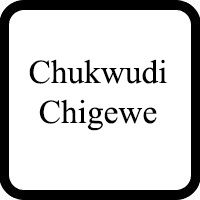Little Neck Bankruptcy & Debt Lawyer, New York
Sponsored Law Firm
-
 x
x

Click For More Info:
-
The Michelson Law Office
203 North Lasalle Street Suite 2100 Chicago, IL 60601» view mapBankruptcy, Chapter 7, Chapter 13 Chicago Bankruptcy Lawyer
When your finances are at stake, choose the best. Don't sink deeper in debt. Contact The Michelson Law Office
800-824-6431
Chukwudi M. Chigewe
✓ VERIFIEDImmigration, Bankruptcy & Debt, Wills & Probate
Admission in NM; Immigration Matters Only in NY
Chukwudi M. Chigewe is a practicing lawyer in the state of New Mexico. Attorney Chigewe received his J.D. from the Thomas M. Cooley School of Law in 2... (more)
Andrew J. Luskin
Dispute Resolution, Franchising, Business Organization, Collection
Status: In Good Standing
Moriah Adamo
Bankruptcy, Estate Planning, Guardianships & Conservatorships, Litigation
Status: In Good Standing
Georgette Miller
Foreclosure, Social Security, Bankruptcy, Bankruptcy & Debt
Status: In Good Standing Licensed: 16 Years
FREE CONSULTATION
CONTACTFREE CONSULTATION
CONTACTMel Jacoby
Accident & Injury, Bankruptcy & Debt, Criminal, Divorce & Family Law
Status: In Good Standing
FREE CONSULTATION
CONTACT
 Abraham Michelson Chicago, IL
Abraham Michelson Chicago, IL AboutAbraham Michelson
AboutAbraham Michelson Practice AreasServices
Practice AreasServices

